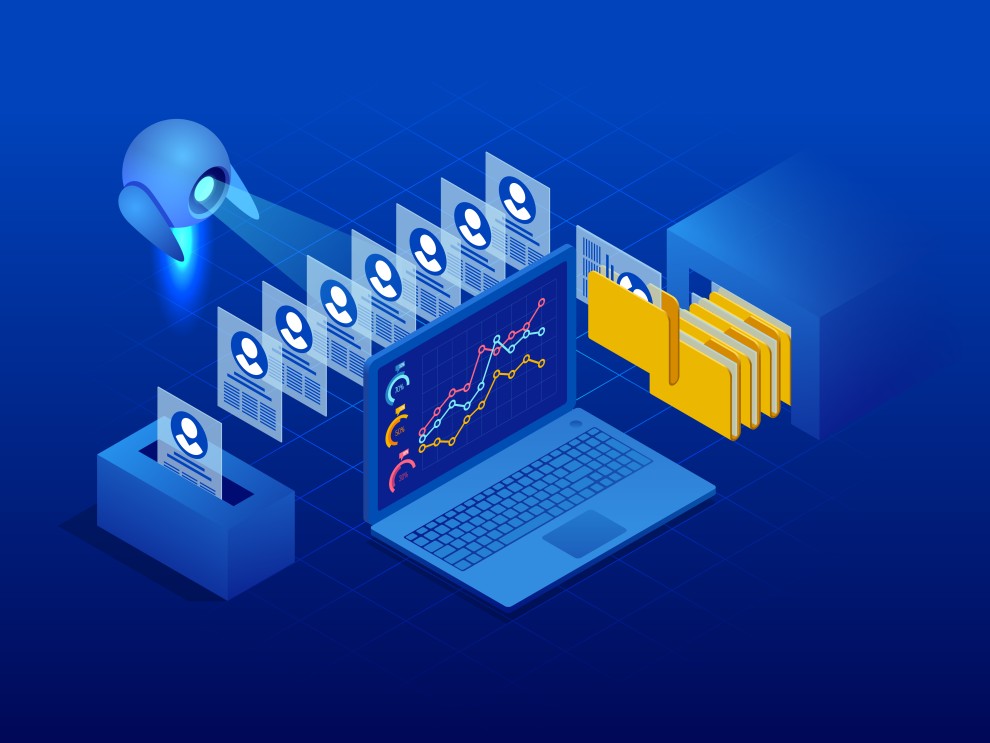It isn’t easy to think of a modern-day application that doesn’t use a database. From marketing automation to customer data, almost all organisations need to store and organise data securely. 91% of businesses with more than 11 employees now use CRM and database software to harness their data efficiently for various purposes. While some apps use flat files, others depend on in-memory or NoSQL databases.
In recent times, Artificial Intelligence (AI) has been moving rapidly towards becoming a crucial aspect of databases for modern applications. This article will explain the concept of an AI database, its main features, and its benefits over traditional databases in modern applications.
What is an AI Database?
An AI database is a relatively new approach for creating better deep-learning and machine-learning models to help operate databases faster and more efficiently. AI databases incorporate artificial intelligence technologies to deliver value-added services.
AI databases can simultaneously ingest, examine, analyse, and visualise fast-moving, complex data within milliseconds to optimise database resources. AI databases also deliver full-text search and text-analytics capabilities.
When users search with a traditional full-text database, having keywords and phrases stored in a referenced file does not ensure that the contents of that file will always be contextually relevant. On the other hand, an intelligent database offers more flexible and expanded options for running queries.
For example, suppose a user enters a question articulated as a full sentence. An AI database corrects possible error inputs by the user and displays synonyms or antonyms for the included keywords and phrases. Accordingly, the AI database will supply a list of results arranged according to the likelihood that the resulting data may have a relevant answer.
AI databases: a better alternative to traditional NoSQL databases
As the name suggests, AI databases are innately intelligent, making them a better alternative to traditional options from the get-go. But that’s not all! Here are the main benefits that AI databases have over traditional NoSQL databases:
AI databases are Simple
AI databases engage software convergence to eradicate data silos, allowing for an off-the-shelf model. Simply put, AI databases can be set up and made operational within just a few hours, without the need for investing many months of valuable time. This significant duration difference alone can cut down tens of thousands of dollars in set-up expenses.
AI databases are Affordable
Dealing with complex appliances and consultants can add hundreds, thousands, or maybe even millions of dollars to startup costs. On the other hand, AI databases can be cloud-based, allowing individuals and companies to start small and pay as they grow. Since AI databases do not require expert coders and are not based on commodity (off-the-shelf) hardware, they are more affordable and drastically decrease the overall go-to-market time.
AI databases are easily Scalable
The convergence of AI and elimination of silos within the database eliminates the need for individual integration of heterogeneous items. An AI database frees up resources by employing a single distributed layer so that the database can scale quickly in a system where scaling was previously close to impossible.
AI databases are Self-serving
With AI databases, data streaming occurs in real-time, thus eliminating the necessity for an additional analytic layer. The AI’s machine learning capacities also train and deploy quickly, thus decreasing build times. This self-serving system ensures that an extensive coding backlog is no longer necessary for the addition of new features. With an AI database, just about anyone can manage database operation quickly and easily.
With all of these advantages put together, the benefits of AI within NoSQL becomes more evident for modern use cases. As the ease-of-use and scalability increase and the operational costs and time-to-market decrease, the potential for using real-time data for actionable insights increases exponentially across the board.
AI databases in modern applications: a step in the right Direction
AI databases support parallel processing — which imitates the ability of the human brain to process multiple stimuli — while also remaining distributed across a scalable infrastructure. This superior efficiency level allows modern applications to process large data volumes more easily and efficiently.
AI databases also help organisations transition to the DataOps methodology, which includes a set of practises for automating the development of and testing data analytics pipelines. At the same time, DataOps facilitates communication across data science teams to increase the agility and efficiency of data science teams. Furthermore, DataOps provides a framework for effective interactions between data scientists, developers, architecture, and database administrators, thereby streamlining and simplifying various processes in modern applications.
BangDB: an AI-based data streaming solution for modern Applications
BangDB is a converged NoSQL data platform that takes on a non-traditional approach towards stream processing. This high-performance platform uses AI technology to handle fast-moving data.
Modern applications require a data streaming solution that can ingest data efficiently, process it quickly, analyse it for patterns and predictions, and store it in a way that allows powerful queries to run optimally for reports or dashboards. BangDB uses a combination of NoSQL, streaming, and AI to highlight the convergence of various elements to solve these problems easily and efficiently, making it perfect for modern applications like EdgeAI that need more than just a NoSQL store.
Examples of AI databases in modern Applications
Thanks to its many advantages over traditional NoSQL databases, AI databases are already being used in modern applications. Following are some of the key examples of AI databases in modern applications:
AI databases for E-Commerce
An AI database can process users’ browsing history, preferences, and interests in real-time to create ongoing recommendations for e-commerce sites to engage better with their customers. An AI-based stream processing solution like BandDB credit card can also detect fraudulent e-commerce transactions in real-time. With BandDB, the provider can examine algorithms quickly to find and block fraudulent charges immediately without making other customers wait.
AI databases for social Media
Social media has become a pivotal aspect of our present-day society and a promising part of our future, too. Any social media platform that wants to remain relevant in the modern world must keep up with events in real-time and adapt accordingly. Social media sites like Instagram and Facebook use AI databases to process large amounts of data about likes, dislikes, and post preferences to ensure a smooth and enjoyable user experience. Twitter also uses an AI database for real-time fraud detection, removal of propaganda, and banning hateful content.
AI databases for navigation and autonomous Vehicles
With an AI database like BangDB, navigation platforms can process real-time information about the number of lanes, unforeseen traffic, roadway obstructions, and route changes to adjust their recommendations accordingly and provide the correct directions and guidance. AI databases in navigation systems also directly influence the future of autonomous vehicles that need to avoid accidents and drive themselves efficiently for safe transportation in any environment.
Conclusion
Overall, AI has a disruptive impact on the database market as it encourages the implementation of new, value-added features like machine learning for optimising storage and archiving processes.
Almost all modern applications are based on real-time interactions or reactions. AI databases like BangDB process large amounts of data to accelerate the training of machine learning models. With speed and efficiency as today’s top priorities, AI databases have proven to be the perfect support system for various modern applications.



